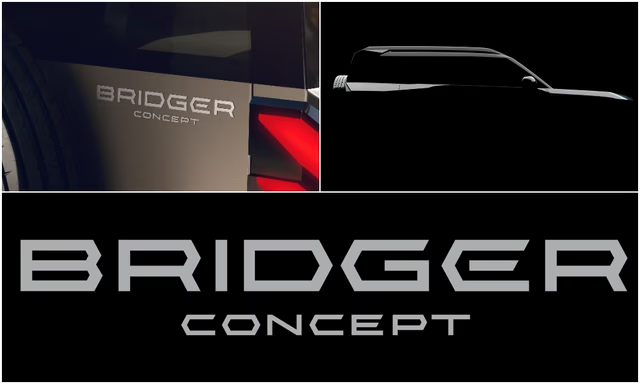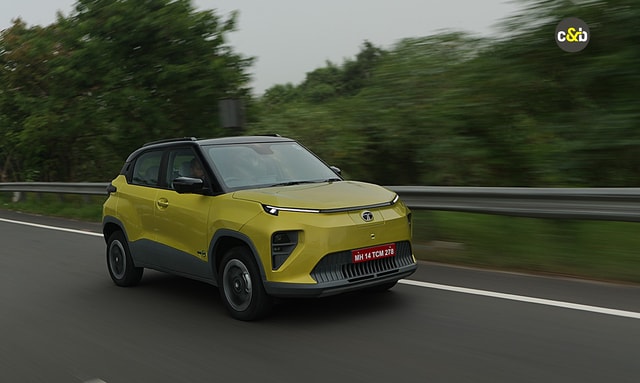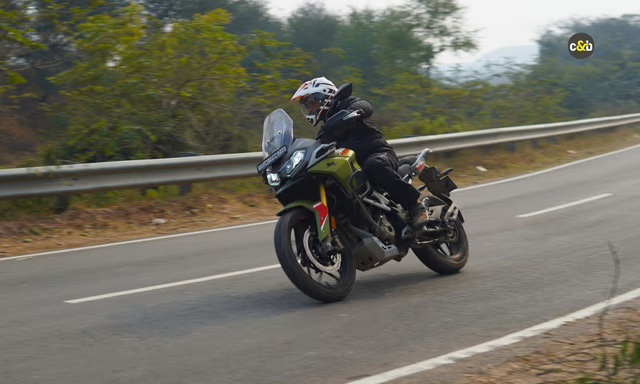Zeno Emara First Ride Review

- The Zeno Emara is a promising utility electric motorcycle
- Decent performance, charging options & pricing offers
- Network, after-sales & swap stations will be key to success
PHOTOGRAPHY: ARVIND SALHAN
The Zeno Emara is the first electric motorcycle from Bengaluru-based electric mobility company Zeno. Billed as a “India’s first sport utility electric motorcycle” for mass market commuters, the Zeno is an interesting proposition, promising rugged performance and a unique design, along with charging flexibility, depending on use case. All at an introductory starting price of Rs. 1,00,000 with a bundled charger and the twin battery packs. We spent a few hours with the new Zeno Emara to get a sense of what it offers, and if it has the qualities to make an impression with commuters in the world’s largest motorcycle market.
Also Read: Zeno Emara Electric Motorcycle Priced At Rs. 1 Lakh
What is Zeno?
Zeno is a relatively new electric motorcycle manufacturer which was started in 2023, and founded by former senior leaders from Tesla, Ola Electric, Apple and Ather Energy. The company is led by CEO and Founder Michael Spencer, who spent several years at Tesla, and the premise of the brand’s first electric motorcycle is to address what is says is a need gap to offer an efficient electric motorcycle with competitive upfront cost. The positioning is to offer an electric alternative to petrol-powered 100-150 cc commuter motorcycles.
Zeno Emara: Design & Features
The Zeno Emara has a unique design – part utility, part ADV-like with a front “beak,” block-pattern, all-terrain tyres and part commuter with a neutral riding position with a flat seat, LED lighting and telescopic front forks and twin rear shocks. The 6.3-inch display is basic, with battery capacity, speedometer, ride mode selected, odometer, trip meter and the tell-tale lights for turn indication and high beam.
The Zeno Emara has three modes, 1, 2 & 3, with Mode 3 offering the best performance. A fourth “Tractor” mode with low-range pulling power is also expected to be introduced once deliveries begin. The 17-inch wheels have disc brakes at both ends, and the Emara boasts of a maximum payload capacity of 250 kg, underscoring its utilitarian personality. There’s 190 mm of ground clearance and a claimed grade-ability of 30-degrees for climbing inclines with load effortlessly.
The Emara has a kerb weight of 160 kg and comes with a long seat designed for utility use. In all, the Zeno Emara has an interesting stance, futuristic, yet practical, rugged, yet utilitarian. Looks are subjective, and whether you find appeal in the Zeno Emara's design or not, you definitely can't ignore it! If anything, the Zeno Emara won't look out of place in a Mad Max movie!
Zeno Emara: Performance & Dynamics
The Zeno Emara has a swingarm-mounted electric motor with peak power of 8 kW (approximately 10.7 bhp). Continuous output is rated at 4 kW while peak torque is a meaty 330 Nm. Claimed acceleration from 0-60 kmph is 7.8 seconds, and from the get-go, the Zeno Emara feels urgent, and quick, in Mode 3. Even with a pillion on board, performance isn’t lacking, and the Emara can easily keep up with city traffic, at times even out-accelerating other petrol-powered commuter motorcycles from a standstill at stop lights.
Claimed maximum speed is 90 kmph, and I saw a speedo-indicated 87 kmph before I ran out of real estate. Between 60-70 kmph is the Zeno Emara’s sweet spot, with plenty of grunt left to reach 80-85 kmph if the need arises for an overtake or two.
Around corners, and on tarmac, the Eurogrip block pattern tyres offer decent grip, and the Emara’s handling and dynamics are also impressive. Even though it’s no corner carver, or designed for such shenanigans, the Zeno Emara remains planted and stable even when pushed hard around a corner. The disc brakes offer good stopping power, although the rear does have the tendency to lock up and skid under hard braking.
What could have been better is the ride quality. Even though the Zeno Emara is primarily designed for utility use and load-carrying, slightly better ride quality would have made it more comfortable for the individual user, or even for family use. That’s not to say the suspension is stiff and unforgiving, but it’s on the firmer side. That set-up aids in handling, but the ride is slightly firm.
Zeno Emara: Range & Charging Time
The Zeno Emara comes with two swappable battery packs with a combined capacity of 4 kWh. According to the company, the real-world range offered is 100 kilometres on a single charge. Our first ride was only for a couple of hours to get a feel and experience the Zeno Emara so there wasn’t enough time to do a proper range test. And with performance dialled down low on Mode 1 and Mode 2, more than 90 per cent of the time we were riding in Mode 3, which offers the best performance, but also likely to deplete the battery pack more.
With just around 30 km of riding, displayed range dropped from close to 98 per cent to less than 60 per cent. Whether charge will deplete slowly below 50 per cent is something we have no way of confirming, or of confirming average range offered over several full re-charging of the battery pack. That is something we can ascertain only after testing the Emara over several days of riding and re-charging cycles.
The 500W bundled charger which customers can opt for along with two battery packs is claimed to charge the Emara from 0 to 100 per cent in 5 to 6 hours. The optional DC fast charger is said to take around 1.5 hours to re-charge the batteries, and a dedicated battery swap station will allow seamless battery swapping in approximately 25 seconds. Each cloud-connected swap station will come with ten slots and batteries will be charged in around 1 hour 15 minutes. The best part is – the Zeno Emara can also be charged at any public access Type 6 charger.
Zeno Emara Price & Subscription Plans
The Zeno Emara can be purchased in three ways – full ownership (with battery and bundled home charger) or with battery as a service with prepaid and postpaid subscription plans. For anyone choosing to buy the Zeno Emara with the battery packs and bundled charger, it is priced at Rs. 1,19,000 (Ex-showroom), with an introductory price of Rs. 1 lakh (Ex-showroom) for the first 5,000 customers and going upto Rs. 1,09,000 (Ex-showroom) for the first 10,000 to 20,000 orders. In this method, the customers will own the batteries which come with a 3,50,000 km warranty, while the bike itself comes with a 50,000 km warranty.
Pre-Order Pricing:
| First 5,000 orders | ₹ 1,00,000 |
| Next 5,000 orders | ₹ 1,04,000 |
| 10,000 - 20,000 orders | ₹ 1,09,000 |
In the battery-as-a-service (BaaS) method, customers can purchase the bike and subscribe access to the batteries, enjoy swapping and fast charging, as well as home charging. Opting for battery-as-a-service makes the Zeno Emara more affordable than any comparable petrol-powered motorcycle, with the price for the standard bike fixed at Rs. 79,000 (Ex-showroom). For the first 5,000 orders, the price under this scheme is pegged at Rs. 64,000, going up to Rs. 74,000 for the 10,000 to 20,000 orders.
Pre-Order Pricing:
| First 5,000 orders | ₹ 64,000 |
| Next 5,000 orders | ₹ 69.000 |
| 10,000 - 20,000 orders | ₹ 74,000 |
Under the BaaS subscription plans, customers have the option to choose both prepaid and post-paid plans. A basic prepaid subscription plan costs Rs. 1,500 per month for 48 kWh of energy, ideal for anyone with average use of approximately 40 km per day. In the advanced prepaid subscription plan, customers will have to shell out Rs. 2,500 per month for 120 kWh of energy, ideal for those with more daily use, of approximately 100 km per day. There’s also a post-paid “pay as you go” subscription plan, which will offer even more flexibility at Rs. 52 per kWh of energy consumed across the Zeno network.
Basic Prepaid Plan: ₹ 1,500 per month for 48 kWh of energy
Advanced Prepaid Plan: ₹ 2,500 per month for 120 kWh of energy
Postpaid Plan: ₹ 52 per kWh
Zeno Emara: Delivery, Network & After Sales
Zeno has set up a manufacturing hub in Bhiwadi, Rajasthan and deliveries are expected to begin in late 2025, starting with Bengaluru and two other cities, followed by Tier II and Tier III cities in 2026. The Bhiwadi manufacturing facility has a monthly production capacity of 1,000 motorcycles, and the company says this capacity will be scaled up depending on market demand, as the brand’s footprint increases. After-sales and service is one area the company says it will focus on, and will offer across all towns and cities the Zeno Emara is eventually available on sale.
Zeno Emara: Verdict
The Zeno Emara is an interesting proposition in the electric motorcycle segment. Other homegrown EV brands in this segment have so far offered products which look more like conventional sport naked petrol-powered commuter motorcycles. In comparison, the USP of the Zeno Emara is to offer a rugged commuter electric motorcycle which could be for personal use in semi-urban and rural markets, and double up as a workhorse, for personal use and for the workforce in the gig economy – motorcycle ride hailing services, delivery agents and the like.
The Zeno Emara is a promising electric motorcycle. It’s built to a cost, but feels robust, performs well and will offer an appealing option as a viable electric alternative to the traditional commuter motorcycle customer. Whether for personal use, or for workers in the gig economy, the Zeno Emara offers an interesting proposition and likeable product which has no red flags as such.
Eventually though, a lot will depend on how Zeno scales up its network, and the kind of support it offers its customer base. Most of all, how the Zeno Emara shapes up over long-term use will be crucial to its success. As far as first rides go, the Zeno Emara has good qualities – decent performance, robust build and flexible ownership plans – all of which should help its case in the Indian market.
Zeno Emara Review - Image Gallery:
Latest News
 Bilal Firfiray | Mar 5, 2026Maserati Delivers India’s First Bespoke Grecale Fuoriserie And One-Off GranCabrio TrofeoMaserati India has bought two bespoke Fuoriserie commissions – a Grecale GT in New Delhi and a GranCabrio Trofeo in Ahmedabad – showcasing the tailor-made preferences of the Indian customers.1 min read
Bilal Firfiray | Mar 5, 2026Maserati Delivers India’s First Bespoke Grecale Fuoriserie And One-Off GranCabrio TrofeoMaserati India has bought two bespoke Fuoriserie commissions – a Grecale GT in New Delhi and a GranCabrio Trofeo in Ahmedabad – showcasing the tailor-made preferences of the Indian customers.1 min read car&bike Team | Mar 4, 2026Kawasaki Patents Modular Electric Motorcycle PlatformWhile the concept of one chassis and multiple powertrains isn’t particularly new, it will allow for simplified production and pass savings onto the consumer.2 mins read
car&bike Team | Mar 4, 2026Kawasaki Patents Modular Electric Motorcycle PlatformWhile the concept of one chassis and multiple powertrains isn’t particularly new, it will allow for simplified production and pass savings onto the consumer.2 mins read car&bike Team | Mar 4, 2026Jetour T2 SUV Design Patent Registered In IndiaA design patent linked to a Jetour T2-based SUV has surfaced in India, hinting at JSW Motors’ upcoming entry into the passenger vehicle market.2 mins read
car&bike Team | Mar 4, 2026Jetour T2 SUV Design Patent Registered In IndiaA design patent linked to a Jetour T2-based SUV has surfaced in India, hinting at JSW Motors’ upcoming entry into the passenger vehicle market.2 mins read Seshan Vijayraghvan | Mar 4, 2026Next-Gen Hyundai i20 Spy Photos Give Glimpses Of Its Updated CabinThe cabin of the new Hyundai i20 will take inspiration from the new Venue’s interior.1 min read
Seshan Vijayraghvan | Mar 4, 2026Next-Gen Hyundai i20 Spy Photos Give Glimpses Of Its Updated CabinThe cabin of the new Hyundai i20 will take inspiration from the new Venue’s interior.1 min read Amaan Ahmed | Mar 4, 2026Renault Bridger Sub-4M SUV Concept Confirmed: 'Mini Duster' To Be Previewed On March 10Adopting a two-pronged strategy for India's incredibly competitive subcompact SUV market, Renault will take the wraps off a boxy, upright SUV concept that's expected to coexist with the Kiger.3 mins read
Amaan Ahmed | Mar 4, 2026Renault Bridger Sub-4M SUV Concept Confirmed: 'Mini Duster' To Be Previewed On March 10Adopting a two-pronged strategy for India's incredibly competitive subcompact SUV market, Renault will take the wraps off a boxy, upright SUV concept that's expected to coexist with the Kiger.3 mins read Bilal Firfiray | Mar 4, 2026Honda City, Elevate, And Amaze Available With Huge Discounts In MarchUpto Rs 1.97 lakh benefit on the City and Elevate, while both the old-gen and new-gen Amaze are available with a discount of up to Rs 68,0001 min read
Bilal Firfiray | Mar 4, 2026Honda City, Elevate, And Amaze Available With Huge Discounts In MarchUpto Rs 1.97 lakh benefit on the City and Elevate, while both the old-gen and new-gen Amaze are available with a discount of up to Rs 68,0001 min read
 Bilal Firfiray | Feb 28, 2026Tata Punch EV Facelift Review: More Range, More Sense, Less MoneyThe Tata Punch EV facelift gets a bigger 40 kWh battery, faster 60 kW DC charging, improved thermal management, and better real-world range, and all of that at a lower introductory price. But does it become a more complete package now?6 mins read
Bilal Firfiray | Feb 28, 2026Tata Punch EV Facelift Review: More Range, More Sense, Less MoneyThe Tata Punch EV facelift gets a bigger 40 kWh battery, faster 60 kW DC charging, improved thermal management, and better real-world range, and all of that at a lower introductory price. But does it become a more complete package now?6 mins read Preetam Bora | Feb 24, 2026Hero Destini 110 Review: Simplicity, RefinedThe Hero Destini 110 is a no-nonsense commuter that is simple, comfortable and above all, fuel efficient. In 2026, when buyers are spoilt for choice, is it good enough to consider?1 min read
Preetam Bora | Feb 24, 2026Hero Destini 110 Review: Simplicity, RefinedThe Hero Destini 110 is a no-nonsense commuter that is simple, comfortable and above all, fuel efficient. In 2026, when buyers are spoilt for choice, is it good enough to consider?1 min read Preetam Bora | Feb 23, 2026TVS Apache RTX Road Test Review: Redefining the Entry-Level ADVAfter spending some time with the TVS Apache RTX in traffic, the daily commute, as well as on open highways, one thing becomes clear: the RTX is trying to redefine the entry-level ADV segment. But is it without fault?1 min read
Preetam Bora | Feb 23, 2026TVS Apache RTX Road Test Review: Redefining the Entry-Level ADVAfter spending some time with the TVS Apache RTX in traffic, the daily commute, as well as on open highways, one thing becomes clear: the RTX is trying to redefine the entry-level ADV segment. But is it without fault?1 min read Girish Karkera | Feb 20, 2026Road Test: 2025 VinFast VF7 AWD Sky InfinityFlagship all-electric SUV from the Vietnamese car maker gets most of the basics right.1 min read
Girish Karkera | Feb 20, 2026Road Test: 2025 VinFast VF7 AWD Sky InfinityFlagship all-electric SUV from the Vietnamese car maker gets most of the basics right.1 min read Jaiveer Mehra | Feb 18, 2026New BMW X3 30 Vs Mercedes-Benz GLC 300: Midsize Luxury SUV FaceoffWith the new X3 30, BMW has a direct competitor to the petrol GLC 300, but which is the luxury SUV for you?1 min read
Jaiveer Mehra | Feb 18, 2026New BMW X3 30 Vs Mercedes-Benz GLC 300: Midsize Luxury SUV FaceoffWith the new X3 30, BMW has a direct competitor to the petrol GLC 300, but which is the luxury SUV for you?1 min read

















































































































